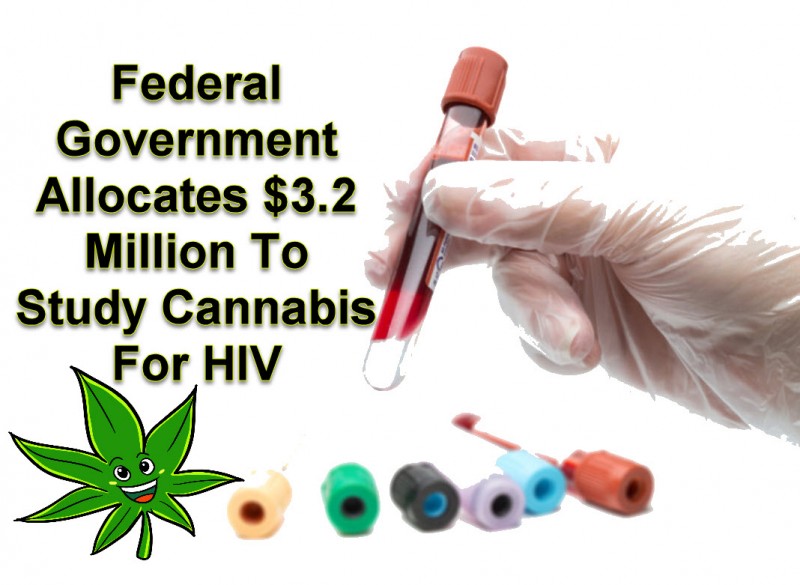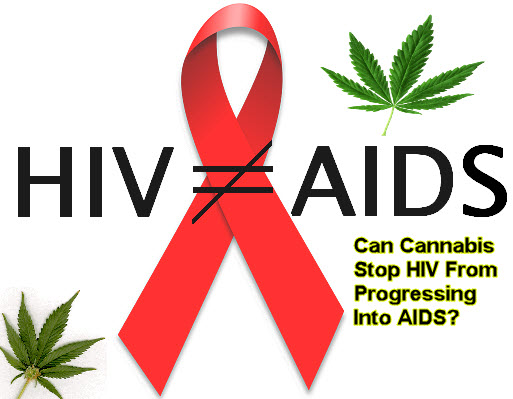Federal Government Won’t Reschedule Cannabis, But Spends $3.2 Million For Research On Cannabis for HIV
US Federal Government to Spend Millions on Cannabis for HIV Study from CannabisNet on Vimeo.
It’s taking what seems like forever for the US federal government to reschedule cannabis from its current status as a Schedule 1 drug, but they’ve just allocated millions to study its effects in treating HIV symptoms.
The National Institute on Drug Abuse (NIDA) just recently awarded a group of University of Florida researchers with a $3.2 million grant to find out what we already know about cannabis – that it can help suppress the effects of HIV. The UF Health press release states that this will be the biggest study of its kind.
The study will be managed by Dr. Robert Cook, director of UF’s Southern HIV and Alcohol Research Consortium. Dr. Cook and his team have already successfully released several papers studying how cannabis can treat HIV. “Marijuana use is increasingly common in persons living with HIV infection,” he said in a statement. “Yet, past findings regarding the health impact of marijuana use on HIV have been limited and inconclusive. Unlike other government-funded studies, most of which are designed to show the negative effects of the cannabis plant, this five-year exploration will serve to guide clinical and safety recommendations for marijuana use.”
We can’t rely on anecdotal evidence forever, no matter how much more people step forward and admit to using cannabis to help treat HIV and other diseases. It’s confusing at best, yet equally important, to have more scientifically-based evidence so that more people would be confident to consider the use of cannabis as a viable alternative medicine for HIV.
Cook and his team are set out to analyze, specifically, how cannabis affects HIV patient behavior and its “effects on the body, including chronic inflammation and viral suppression.” To conduct the research, his team will follow 400 cannabis users with the intention of identifying “patterns of use most strongly associated with control of patient symptoms, such as pain, stress, and sleep problems.” The researchers will also be monitoring the quantity, frequency, as well as the cannabinoid profile of cannabis that the patients use in order to discover important patterns.
The press release also says that Florida has the highest incidence rate of new HIV infections, as well as the 3rd highest number of persons living with HIV in the United States, almost half of whom are 50 years of age or older. The study will take 5 years, wherein the researchers as well as their partners at the Florida International University will be working together.
“Marijuana contains a range of cannabinoid components, each of which could affect HIV health outcomes positively or negatively,” Cook says. “These include behavioral effects, such as medication adherence and planning, and effects on the body, including chronic inflammation and viral suppression.”
“Many persons using marijuana for specific health indications may have identified specific strategies to use marijuana that they find most effective, and we can learn from their experience,” Cook adds. “This information can help to inform clinical care and identify specific types and patterns of marijuana use to be studied in future randomized clinical trials.”
The researchers will also compare the results of people who used cannabis medicinally with the outcomes of people who used it recreationally, while tracking the long-term effects of opioid use in these populations. “We expect the study to contribute to clinical and public health guidelines, while also addressing knowledge gaps about how much marijuana is ‘too much’ and how the effects of marijuana may be different in older individuals,” Cook says.
What We Know Today
With around 37 million people living with HIV today, there is a serious need to learn more about alternative treatments particularly cannabis, and how it can improve the quality of life of patients and most importantly, perhaps even finding more information about how it can prevent the progression of HIV into AIDS.
There are already small-scale studies that have shown how cannabis can help ease the symptoms of HIV, particularly with peripheral neuropathy, depression, appetite loss, nausea, and insomnia. The UF study will, hopefully, provide more valuable information and provide clarification on how exactly cannabis can be used as treatment.
In fact, some of the world’s biggest HIV/AIDS organizations already support the idea of patients using medical cannabis for their condition, including the American Academy of HIV medicine. While the stance of the federal government remains puzzling, this is still some good news.
OTHER STORIES YOU MAY ENJOY...
CANNABIS FOR HIV AIDS PROGRESSION, CLICK HERE.








